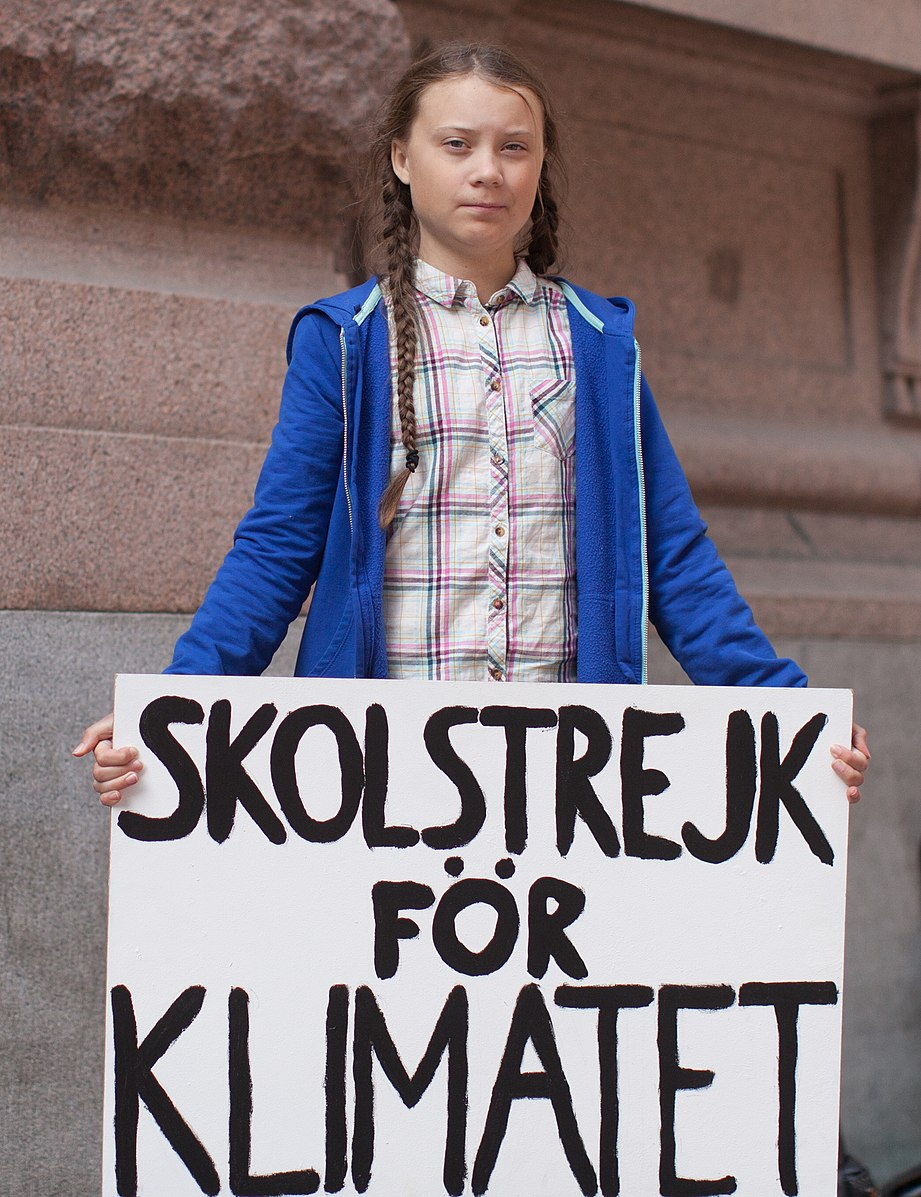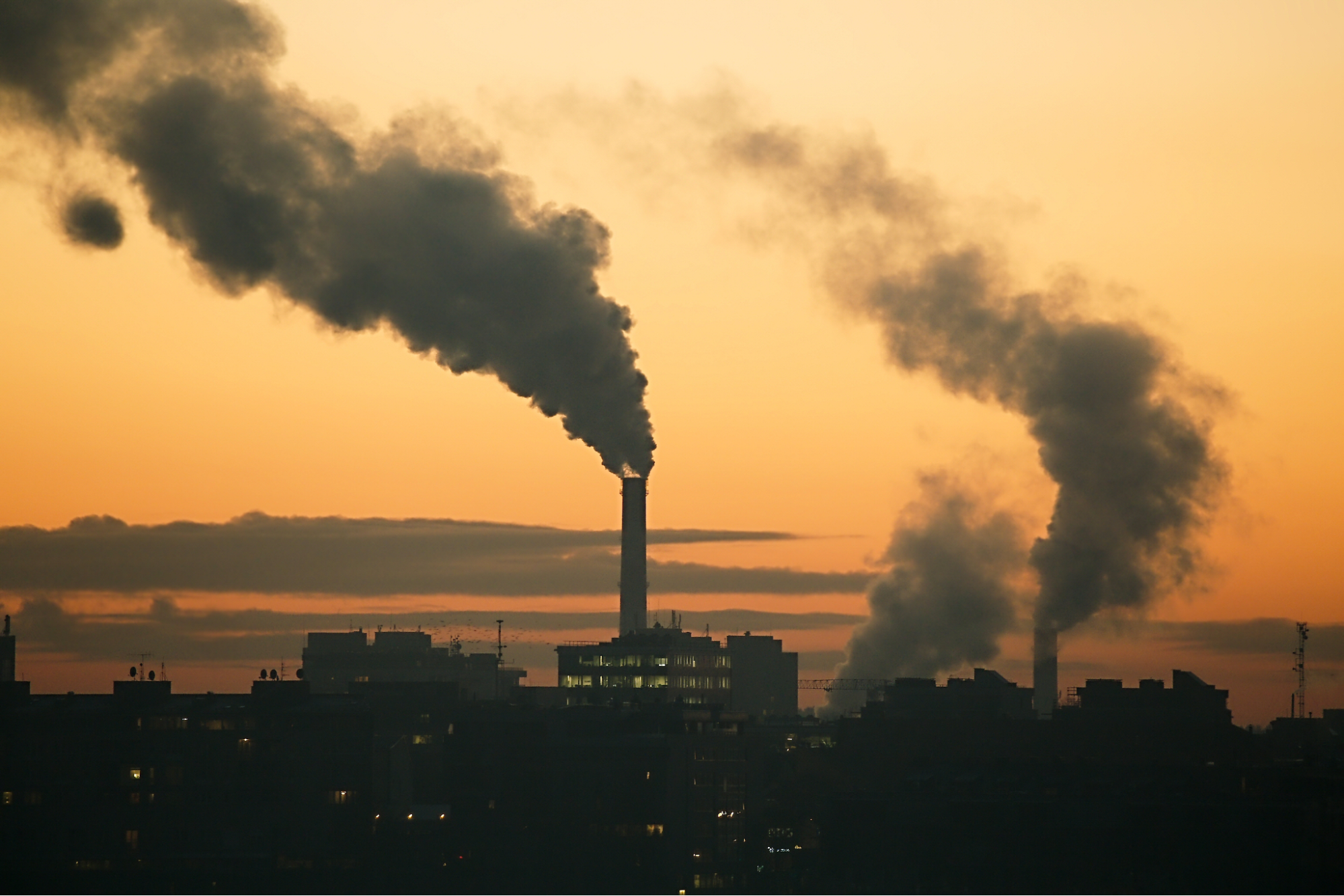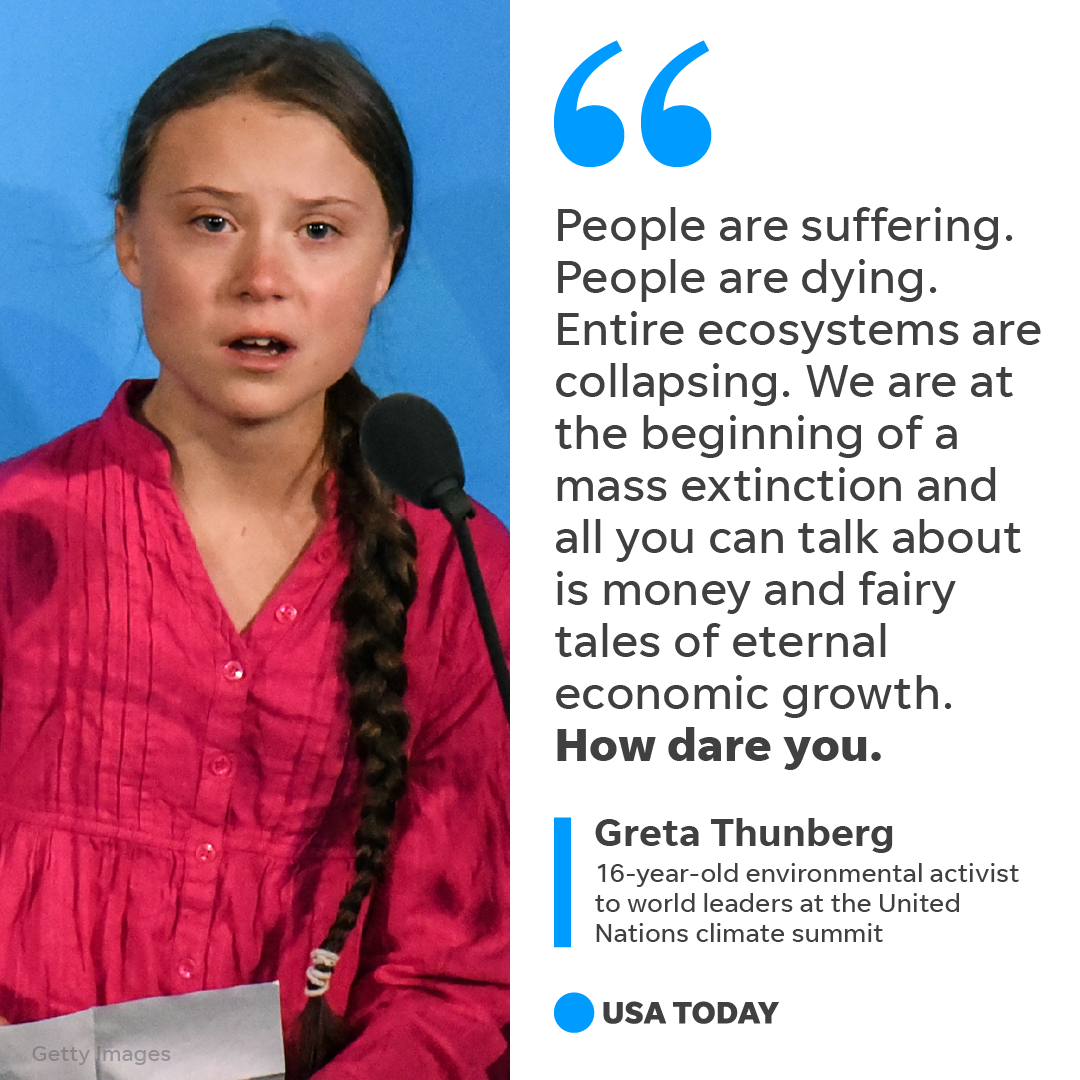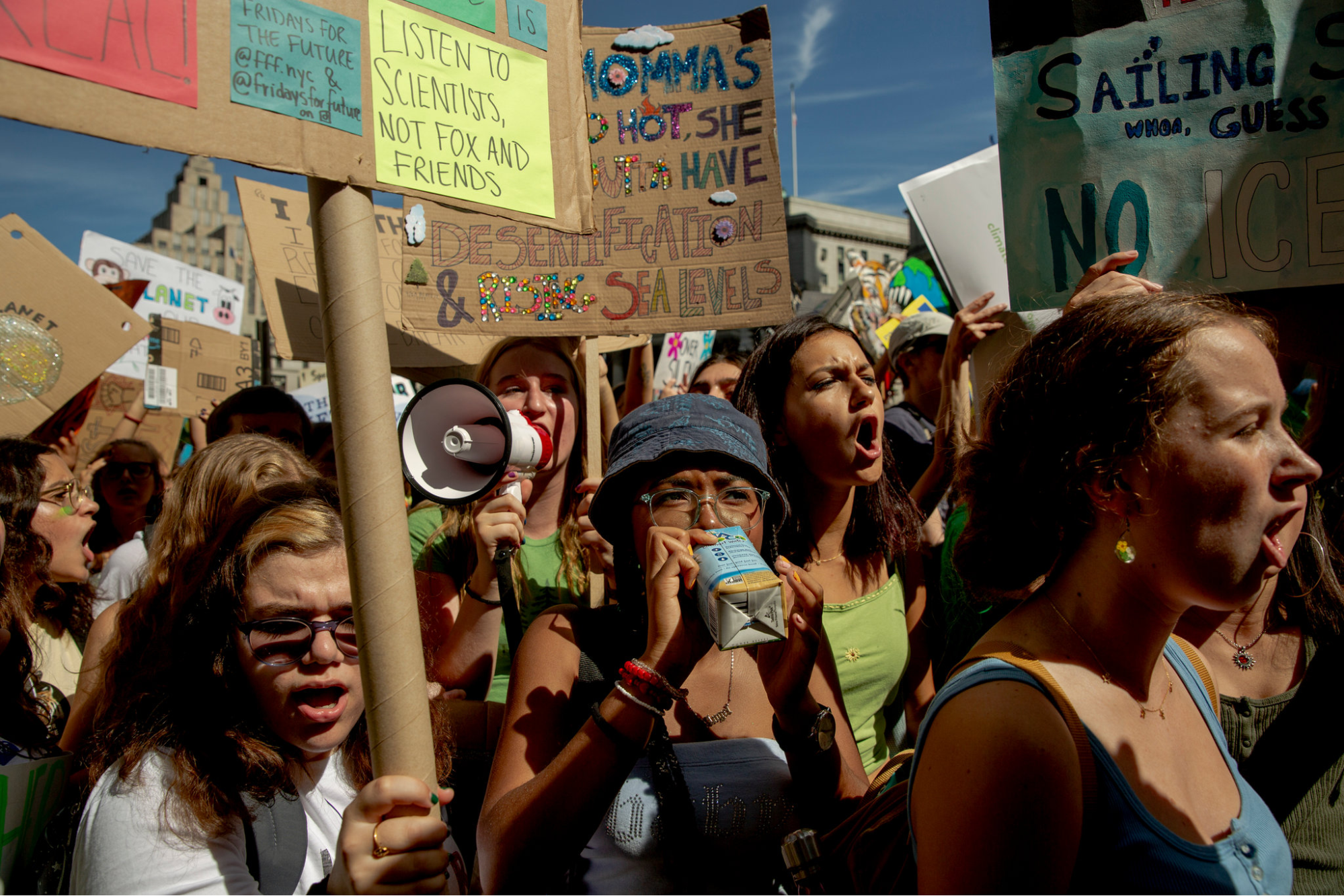Rachel Yuan
Current Events 📰
60 resourcesSee Units
Sparking Environmental Change With a Youth-Driven Movement
With the recent commemoration of the International Day for the Preservation of the Ozone Layer (September 16, 2021), the name "Greta Thunberg" might've appeared in your news feed in one way or another. The question is: who's this notable figure and why is she a big name in the fight against climate change? 🌱

Thunberg protesting outside of Sweden’s Parliament with sign that reads "School strike for climate"
Image from Wikimedia.
Who is Greta Thunberg? 👩
Hailing from Stockholm, Sweden, Greta Thunberg is arguably one of the most famous climate change activists of the 21st Century. Thunberg first made international headlines in 2018 when she skipped school to protest climate change in front of Sweden’s parliament building. Her movement, which started in August, became so large that over 20,000 students from across the world joined her in striking their respective schools to fight for global environmental change. ♻️
In essence, Thunberg’s protests and speeches are all aimed towards getting public officials to stop their inaction against the environmental damages of drilling of fossil fuels, coal mining, and carbon emissions. She also advocates for governments to follow international climate change treaties such as the Paris Agreement and for large corporations to stop investing in fossil fuels. 🛑
Fossil fuels, which are easy to access, are non-renewable and highly toxic to the environment. These fossil fuels release greenhouse gases into the atmosphere, thus contributing further to the global warming.

Fossil fuels being burned in power stations
Image from Sciencing.
Notable Activism/Appearances 💡
The statement "Greta Thunberg is arguably one of the most famous climate change activists of the 21st Century” is not an exaggeration when we zero in on her most notable achievements. From boldly delivering speeches in front of world leaders to leading crowds of tens and hundreds of thousands of people in striking, Thunberg's activities are among the most powerful examples of Gen Z-led activism. 🗣️
UN Climate Action Summit in New York City (2019) 🗽
You have likely already heard excerpts from Thunberg’s powerful speech in front of the United Nations in 2019. In merely four minutes, Thunberg was able to move millions of people with her furious words towards the world leaders assembled in the summit room. 💬
Starting the speech with a condemnation of the leaders' negligence towards the environment to the extent that a young student had to open their eyes, Thunberg then repeated the phrase “How dare you!” to bring the glaring problem of climate inaction into attention. Thunberg focused on scientific facts of the effects of global climate change while also making accusatory statements towards the leaders' neglect of the environment over the past decade or two. She ended the speech by reminding them that the children of the world would not forgive them for their inaction if the leaders continued to fail them 😠

Image from USA Today
The fact that the leaders didn't expect Thunberg to berate them on a topic that they had largely ignored the effects of for so long made her speech even more effective. Thunberg’s bold statements—in combination with her youth—made the speech a viral sensation and propelled Thunberg into further stardom both online and offline. ⭐
New York City Global Climate Strike (2019) 📅
In 2019, Thunberg addressed a crowd of over 300,000 people with her speech at the NYC Climate Strike. This strike was one of the thousands of planned global strikes from September 20-27, 2019. Thunberg addressed this crowd after her famous speech at the UN Climate Action Summit only a few days prior.

Thousands of students and adults gather in support of climate action
Image from the The New York Times.
Nobel Peace Prize Nominations (2018, 2019) ☮️
In 2019, Thunberg was nominated for the Nobel Peace Prize by Swedish lawmakers for her climate change and environmental activism. The year prior, certain Norway lawmakers also nominated her for the same prize as part of a growing acknowledgment of her momentous activism. While she didn't win either nomination, it's truly significant that just after beginning her career as an activist at such a young age, Thunberg received TWO nominations for such a prestigious award 🏆
Time’s Person of the Year (2019) 🟥
In 2019, Thunberg was named the Time Person of the Year, and is the youngest to receive this award at 16. Thunberg's proactivity in climate change activism and meteoric rise to prominence helped impact and inspire millions of young people to take action, protest, and hold authority figures accountable on climate change and other issues near their hearts; in response, Time bestowed the "Person of the Year" distinction to her 👏
Why is Thunberg So Controversial? 😱
Thunberg is so controversial because of her fame and social media presence as an activist. With internet popularity comes exposure to internet trolls and online bullying. Especially in recent years, having an online presence forces those with large followings to be extremely careful of their language as they could be “called out” or “cancelled” for seemingly insensitive language. Thunberg has come under fire (February 2021) after posting a toolkit about standing with Indian farmers, which many people viewed as propaganda-like. 🔥
Additionally, the topic of climate change is an extremely inflammatory subject among politicians because of the use of fossil fuels and other environmentally damaging resources being economically beneficial to attracting large corporations. Debate is still ongoing on whether climate change and global warming have truly been scientifically proven, putting Thunberg under further scrutiny by influential politicians and the general public. 👎
What Can We Do? 🙌
While we may not be able to skip school to protest in front of the government similar to what Greta Thunberg did, we can still make positive changes to the environment in our own ways. Even the smallest climate-friendly actions in our daily routines can help others in understanding the importance of advocating for the environment!
We can:
- Be mindful of where we put our money. 💰
- Research the brands you are buying from 🧐
- Are they sustainable? 🍏
- Do they pledge to be environmentally friendly? 🤝
- Educate others and ourselves about the environment. 🏫
- Start clubs at our school to advocate for the environment. 🎬
- Make small changes in your daily life. 🚴
- Turning off the lights when not using them 😴
- Recycling and also upcycling materials for other uses 😍
- Be mindful of the resources you are using (ex. tissues, paper, and food waste) 🗑️
Sources for Further Reading 📖
Connect with other students studying current events with Hours 🤝
Browse Study Guides By Unit

Fiveable
Resources
© 2023 Fiveable Inc. All rights reserved.